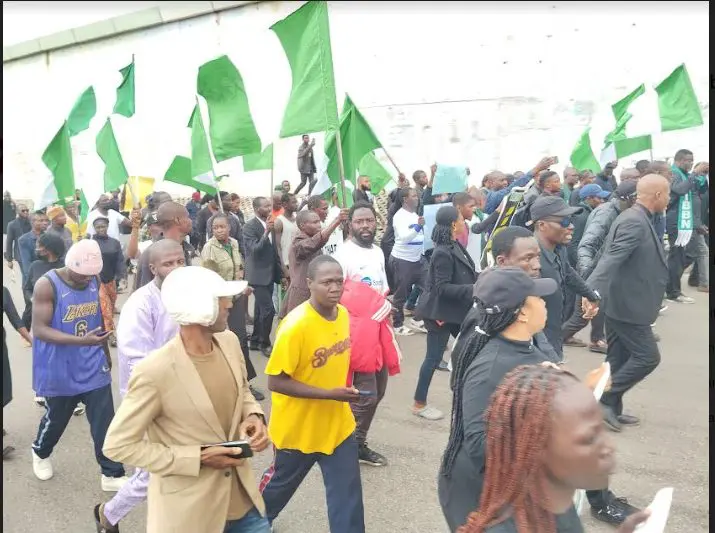Protesters Demand Release from Detention, Challenge Court Order
In a bold move, 49 arrested and detained EndBadGovernance protesters have demanded the vacation of the orders of the Federal High Court in Abuja, which granted the Inspector General of Police permission to detain them for 60 days pending the conclusion of an investigation.
Through a consortium of human rights lawyers led by renowned lawyer Femi Falana, SAN, the protesters have filed a motion on notice dated August 26, 2024, seeking the setting aside, discharge, and vacation of the court order. They are demanding to be released from detention immediately.
The ex-parte order for their 60-day detention was made on August 22, 2024, by Justice Emeka Nwite in a suit with number FHC/ABJ/CS/1233/2024 between the IGP and Comrade Opaluwa Eleojo and 48 others.
The protesters, who are being held in police custody, argue that neither the IGP nor President Bola Tinubu has the right to arrest them for exercising their fundamental rights to object to government policies that expose them to hardships. They point out that Tinubu has led protests in the past without being harassed, molested, arrested, or detained, and that he is the biggest beneficiary of protests and dissent in the country.
In an affidavit in support of their motion, deposed to by Paul Ochayi, the protesters reiterate that protest is a right and that President Tinubu has led protests in the past without being harassed, detained, or remanded.
The protesters also challenge the remand orders on the ground that Justice Nwite, who issued them, had no jurisdiction to grant the ex-parte order made pursuant to Section 299 of the Administration of Criminal Justice Act, 2015.
No date has yet been fixed for the hearing of the motion by the court, but it has been served on the Inspector General of Police for his response as required by law.
The protesters’ demand for release from detention and the vacation of the court order has sparked widespread interest and debate, with many calling for the government to respect the fundamental rights of citizens to protest and express themselves peacefully.
